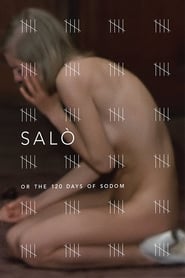To this viewer at least, the film's most powerful critique is of the way that politically radical ideas and messages are annexed and incorporated by mainstream society. Its critique is implicit as, quite frankly, there's no way anybody is going to make a jaunty spoof of Salò to sell a foam mattress on a podcast anytime soon. Impossible to co-opt, and despite umpteen trillions of terabytes of internet porn in the 50 years, you have to give the film a modicum of respect in that it remains barely watchable. It is also an unpleasant reminder that every generation incorrectly thinks it is considerably more debauched than their parents.
Still, I hate to sound like a puritan, but I suspect all of Salò's point could be made in a more appealing manner. Simultaneously a "must see" and a "must avoid" (Eric Henderson), the film somehow challenges the viewer to justify its own position in the canon of cinema: a circular logic that, somehow, to pick an apposite metaphor, eats its own tail. Perhaps the most powerful argument against "separating the art from the artist" given that nobody would be watching this if it didn't come from such a noted left-wing filmmaker.
I remain less convinced about it being a critique of fascism, though. Notwithstanding the German uniforms (and that no doubt some Nazis were doing precisely this kind of thing for years), the film's most powerful remarks seem to be aimed at totalitarianism in general, the psycho-sexual component of power, the fantasy of domination (or the domination of fantasy…), and perhaps simply just of absolute power more broadly: see Budd Wilkins' remarks below about the "anarchy of power". Perhaps I missed some crucial scene due to looking away, but "it's actually a scathing critique of the Nazis" seems a bit of stretch, unless Pasolini, like some others at the time, was seriously equating 1970s consumerism and "modern bourgeois society" with Fascism.
For whom, we might well ask, is this funhouse fun? […] Every detail of [the] set design, the marble floors, ornate mirrors, and all-around Deco décor, testifies to aristocratic aesthetic indulgence, in flagrant disregard of official fascist “culture.” In their private quarters, the four men display proscribed artworks, quote forbidden literature and discuss illicit ideas, part and parcel of what Pasolini called the anarchy of power, its refusal to play by its own rules.
— Budd Wilkins (Slant Magazine)
Pasolini began the film during a period of enormous artistic crisis. Filled with “disappointment in man and God” (as one friend of his described it), he began to think that all his earlier work was bogus and compromised, merely another length of the feed-tube through which consumerist repression is shoved down our throats. His response was to make what he called an “indigestible” film.[…]
A cinematic ground zero, Salò confirms the cruel meaninglessness of everything human. Life is reduced to impersonal fornication, eating and defecating, the inescapable power of hawks over sparrows—with no hope of transcendence or redemption.
— John Powers (Criterion)

